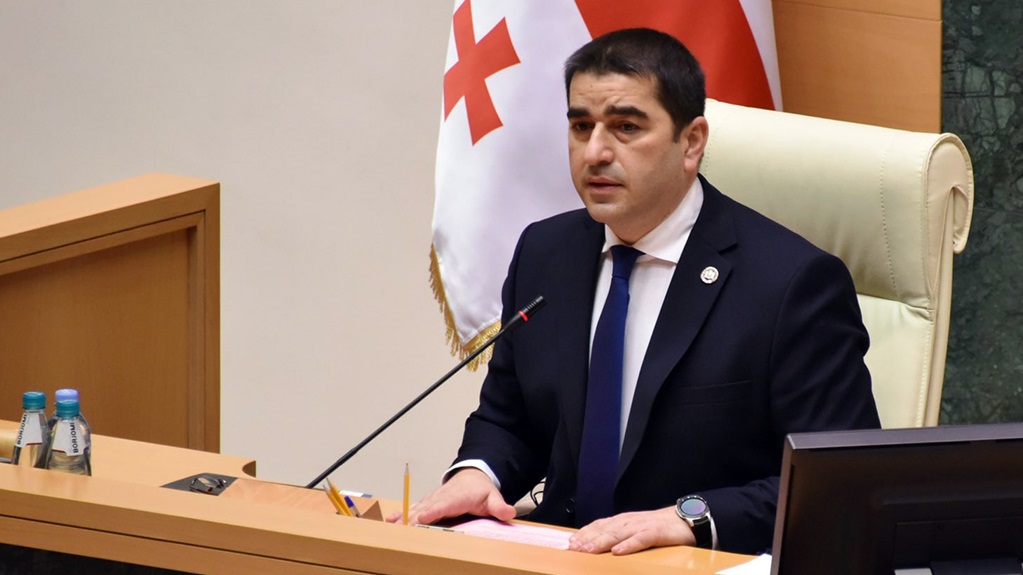The Chairman of the Parliament of Georgia, Shalva Papuashvili, declined to attend a meeting with the delegation of the chairpersons of the foreign relations committees from the parliaments of 8 European Union member countries. The heads of the committees in the Parliament of Georgia will also not meet with the delegation.
News
Papuashvili cites the "unfriendly attitude" of some members of the delegation, including Žygimantas Pavilionis, the chairman of the Foreign Relations Committee of the Seimas of Lithuania, as the reason for this decision. As Papuashvili notes in his statement, it was "Pavilionis who brought together the group of parliament members from several countries."
"Although the Georgian government remains committed to promoting dialogue with all relevant and interested parties within the European Union, I cannot respond positively to the intention of holding meetings. Some members of the delegation should not harbour any further expectations, given the repeated unfriendly attitude towards Georgia. It is clear that the main purpose of this visit is political bias, and this is evident to all," Papuashvili explains.
He also accuses his European colleagues of "sowing disorder in the name of Europe," interfering in elections and ignoring the Constitution of Georgia.
"Georgia's constitution and election legislation prohibit foreign interference in elections, which has been grossly overlooked. By directly participating in election-related processes, particularly in anti-government actions, these politicians have violated the principle of non-interference - a fundamental norm of international law reinforced by the UN Charter. They have questioned the very essence of the rules-based international order to which they claim allegiance. This has contributed to deepening political polarization within the radical opposition, worsening the pre-election environment, and creating a perception of tension surrounding the elections," says Shalva Papuashvili.
According to his statement, the support for "false narratives and disinformation" spread by radical political parties has "shaken" the trust of the Georgian population in the benevolence of its Western partners.
"These actions and unfriendly rhetoric contribute to the attempt to use the EU enlargement process as a tool to further embolden the opposition, undermine confidence in the election results, and delegitimize the elections."
The unfriendly rhetoric and actions of some members of the delegation towards Georgia and its government, which we have witnessed over the past two and a half years, also hinder our efforts to maintain peace and democratic stability in Georgia. It is impossible to present Europe as a project of peace while, in the name of Europe, sowing chaos in the country.
Georgian society clearly responded to foreign interference in the October 26 elections, when Georgian Dream won another convincing victory. Rejecting the elections and ignoring such a strong voter mandate is a path the opposition has followed for years and which Georgian society has become accustomed to. However, when Georgian society sees European politicians rejecting democracy, it damages trust in the European Union. Given the above, I find it impossible to agree to the request received.
At the same time, I would like to express my respect to other members of the delegation and confirm my readiness to continue the dialogue within the framework of the fundamental principles and norms of parliamentary diplomacy, based on respect for equality and sovereignty," Shalva Papuashvili notes.
The chairpersons of the foreign relations committees of the parliaments of Germany, Finland, Sweden, France, Lithuania, Latvia, Estonia, and Poland are currently in Georgia. As the representative of the German Bundestag, Michael Roth, stated, they will meet with the president, representatives of the opposition, civil society and media, as well as students. According to Roth, "unfortunately, there will be no meeting with the representatives of the government or Georgian Dream."















